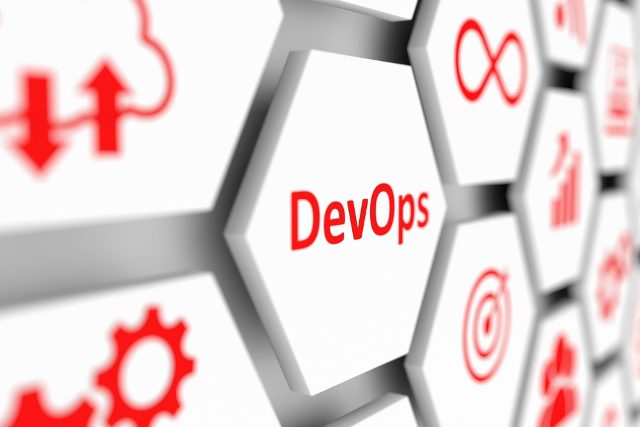
Since 2014, we have seen adoption rates for DevOps accelerating. While many in the tech world fully understand what DevOps is all about, not everyone is able to put context into what it involves because there are a lot of practices and technologies that go with it. Often, even the most experienced engineers will define DevOps simply as a collaboration between devs and ops.
The reality is, DevOps teams play a crucial role in improving products for startups and enterprises. Their goal is to use a set of software development practices and combine them with IT operations in order to shorten the systems-development life cycle. According to Erik Gfesser, principal architect at digital consultancy SPR Consulting, DevOps is both a mindset and methodology.
With DevOps, there is no longer a separation between development and operations teams, making it possible to deliver projects faster and more efficiently compared with traditional software development and infrastructure management processes.
Because DevOps can be complex, there’s been a huge misconception about what it truly is. Here’s one of the biggest myth that surrounds DevOps in 2019:
DevOps is anything other than a commitment to cross-functionality.
DevOps is an ideology. At its heart, DevOps is about empowering the team that writes the code (dev) with the ability to quickly and easily deploy their code (ops). That’s it.
There’s no magic formula for “doing DevOps”. Sure, a single engineer can learn loads about automating infrastructure, architecture-as-code concepts, continuous integration and delivery, and along the way they can become proficient in a ton of tools and processes that make DevOps easier.
But it doesn’t matter what tools you use (Ansible, Chef, CircleCI), or how you structure your work (agile, kanban, waterfall, extreme programming, etc.)
If your organization isn’t ready to commit fully to cross-functionality between your development and ops teams, then you’re not doing DevOps.
If your organization can’t stomach the idea of your programmers deploying their own code (or at least being involved in the process), then you’re not doing DevOps.
If your plan is to hire a “DevOp” and throw them at what is really a culture problem, then expect them to work a miracle…you’re definitely not doing DevOps.
How does this myth harm DevOps processes and teams?
People want simple solutions to complex problems.
Try telling the average manager or C-level that their low momentum and their late-night fire extinguishing is a direct result of a culture problem, and let me know how that goes.
Rather than put in the (very hard) work to make an organization more open and cross-functional, it’s much easier to fall into the trap of believing that you can hire someone with “DevOps Engineer” on their resume and all your deployment problems will evaporate overnight.
Or, God forbid, hire a whole DevOps team that’s just as siloed as all your other teams and expect them to magically force all your other teams to talk to one another.
This belief is understandable but it’s damaging to everyone. The engineers and ops teams will resent relative strangers coming in trying to dictate new processes to them, the managers will resent that their products and features aren’t getting shipped any faster, and the DevOps folks will walk away frustrated that they couldn’t accomplish the Sisyphean task that was handed to them.
What steps can be taken to dispel this myth?
There have been stellar talks on the subject like DevOps Is Dead (Long Live DevOps) and How Netflix Thinks of DevOps. Force your entire team to watch with you or attend a DevOpsDays conference in your area and take your entire team along.
But most of all even if you’re “just a manager”, take the time to understand what DevOps actually is before you suggest its adoption. Especially if you thought it was anything other than ideology.
About Author:-
Joe is the founder of Topflight Apps, an award-winning app team of entrepreneurial designers and developers. Topflight Apps has been recognized by B2B ratings and reviews platform Clutch as one of California’s best mobile app development companies.